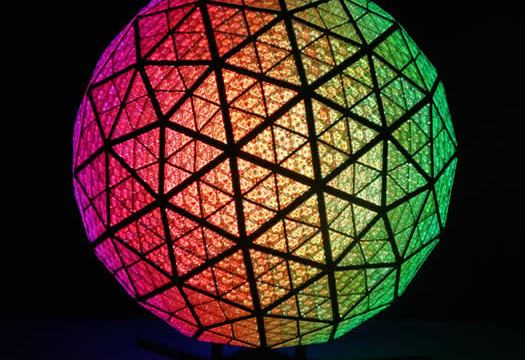Great Worlds, Spinning: The Decade’s Finest Metaphor

Colum McCann’s Let the Great World Spin has been praised as one of the finest novels of the year—one of the finest books, full stop. Tina Brown loved it. Jonathan Mahler raved about it in the Times last summer. It won the National Book Award. One reason McCann’s story makes an excellent end of this year, and, moreover, end of this decade read is that it beautifully maps what we’ve lived through these past nine years by taking us to a very different point in time, the early 70s, in New York City. The novel slyly opens with an emblematic occurrence at the Twin Towers, the tightrope walk of Philippe Petit; the comparison with our own more recent experience there is implicit.
McCann’s story says something about the emotional wreckage of September 11, 2001 without ever once mentioning that day by name. Rather, by remembering another era in the life of an icon—those Towers rising in the sky—we are able to see them anew. In framing the Towers repeatedly, yet subtly, as the place of Petit’s magical stunt, McCann frees them—if only momentarily, while we read—of one thing (loss) while re-investing them with another (possibility).
This is a book you cannot put down. Perhaps it will be the choice teachers make decades from now, when they want kids to think about what it felt like in the city these past ten years. There are aspects of the city that never change: the way people collide and co-exist; the way friends become family and colleagues serve as neighbors; the close quarters of crime and power. New York at that time feels at once dynamic and quaint, these are qualities no longer isolated from the one we added after nine eleven: fear.
McCann’s title comes from a poem by Alfred, Lord Tennyson, Locksley Hall. The poem is a dramatic monologue told by a soldier, detailing his thoughts on his childhood and, eventually, his vision of the future. Reading it reminds us how all our visions of our futures are what sustain us in managing—and releasing—the past. This is why we make resolutions. Tennyson writes:
Not in vain the distance beacons. Forward, forward let us range,
Let the great world spin for ever down the ringing grooves of change.
Thro’ the shadow of the globe we sweep into the younger day;
Better fifty years of Europe than a cycle of Cathay.
Tightropes make fine metaphors. They are not uncommonly used. But McCann’s choice of this particular walk is my choice of this decade’s most brilliant metaphor, not only for its visual coincidence with the attacks but for its reminder of our need for awe, and faith. The New Yorkers in the novel cannot not look up at him, just as they could not not look up on that day years later. They were fascinated by the grace Petit exhibited and thrilled by the expectation he set: that he would make it. He had to. This was his duty to us.
And of course, Petit’s act was sui generis, not replicable. It was done once, after which laws and rules were put in place to prevent imitation. So: something done once, after which laws and rules were put in place to prevent imitation: we understand this description to fit different things now.
We all have the chance to begin anew, again.





